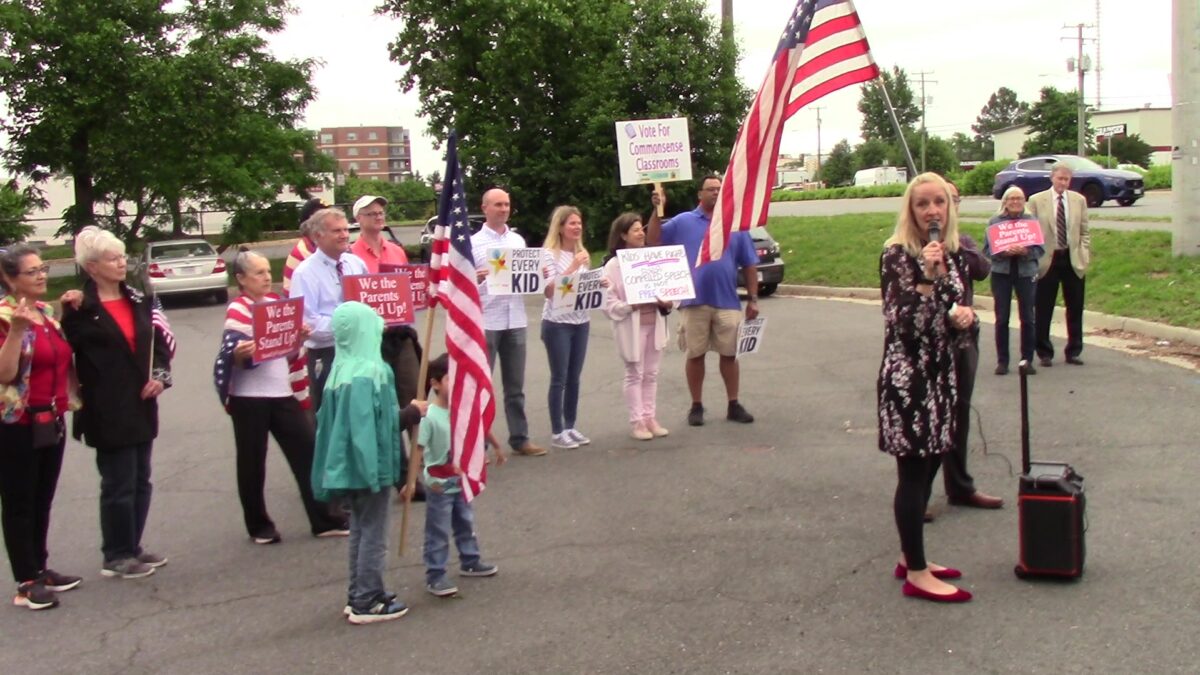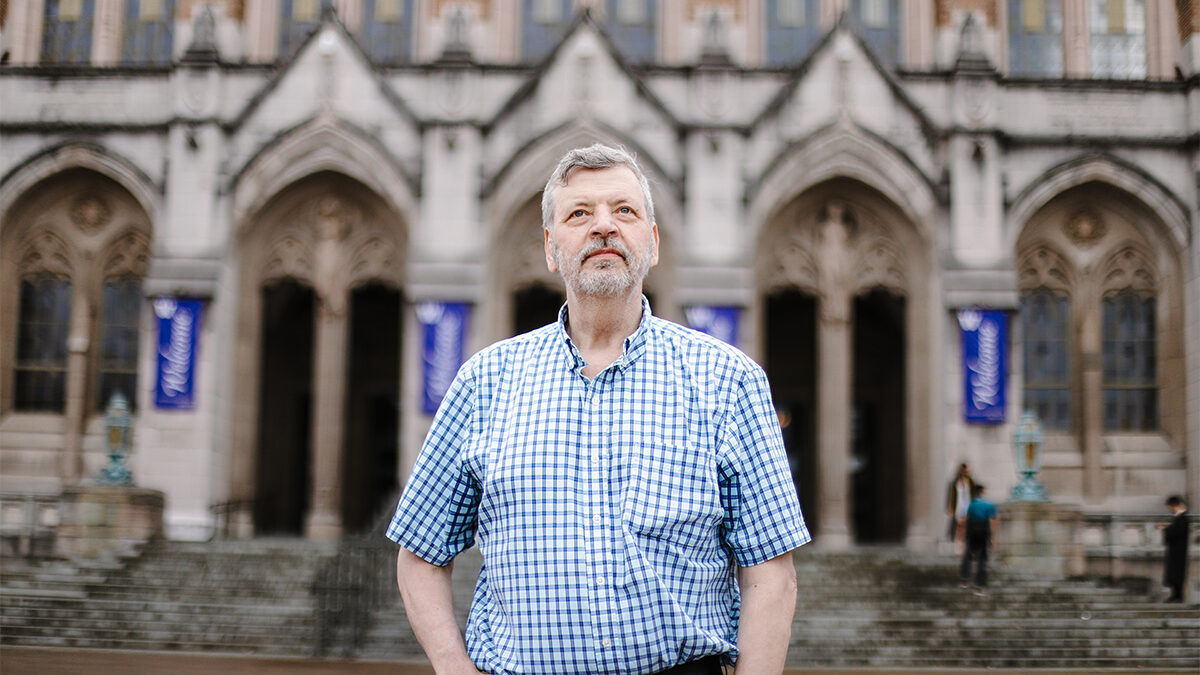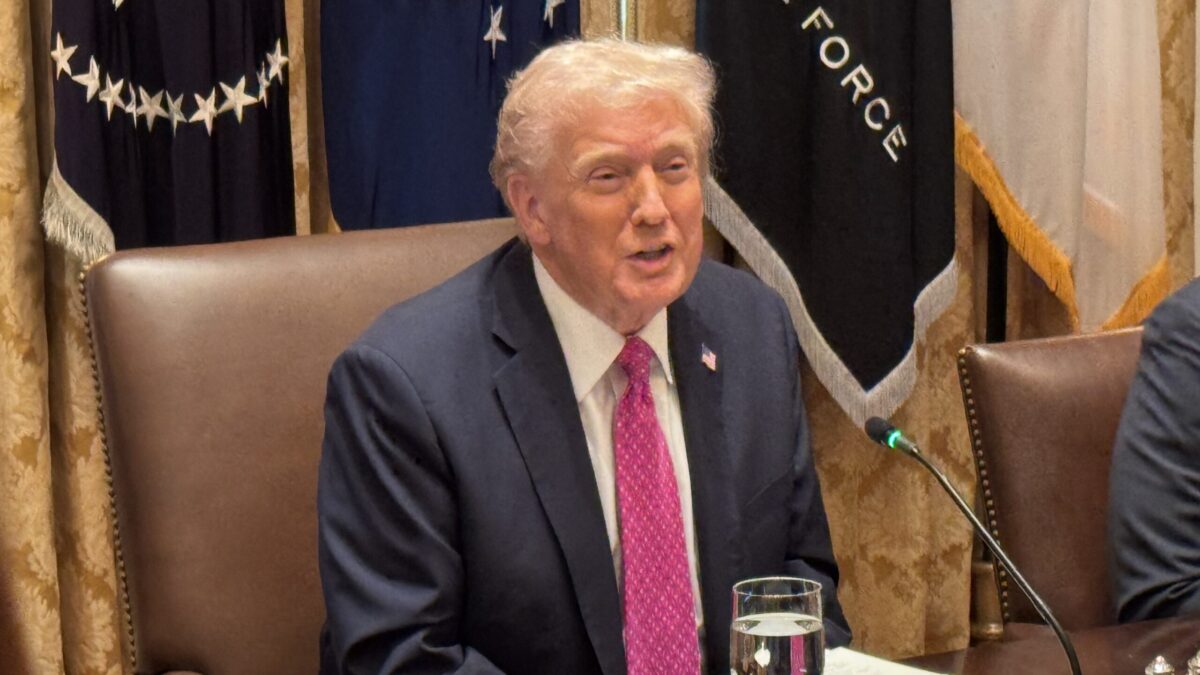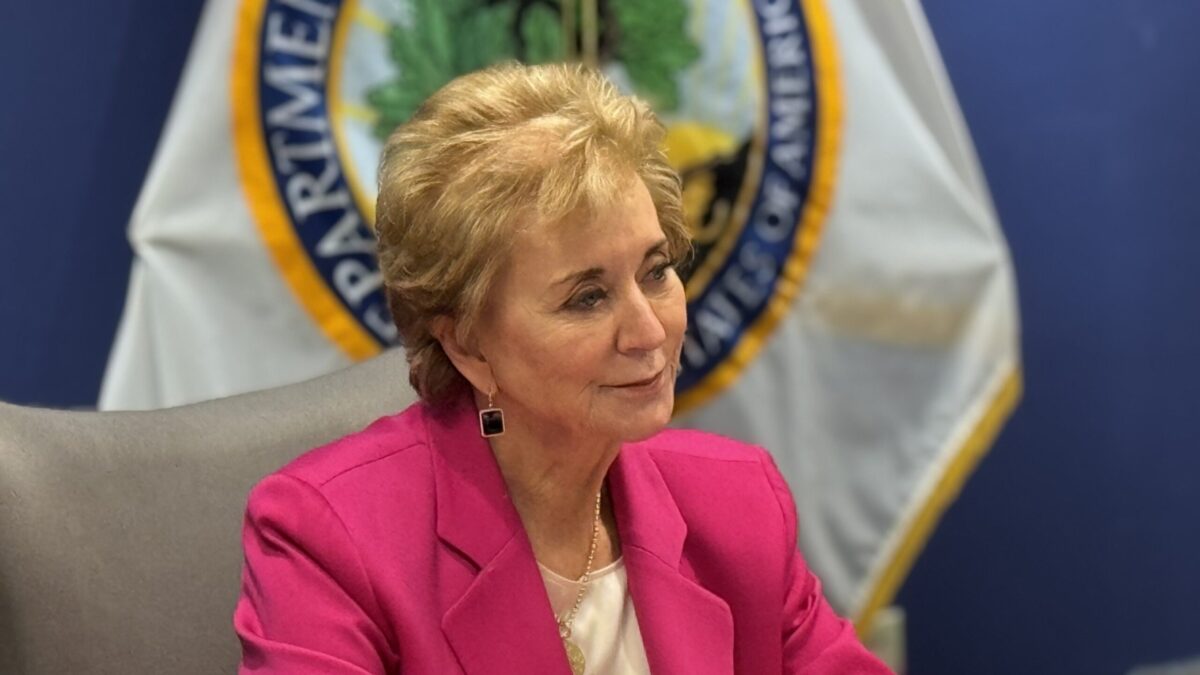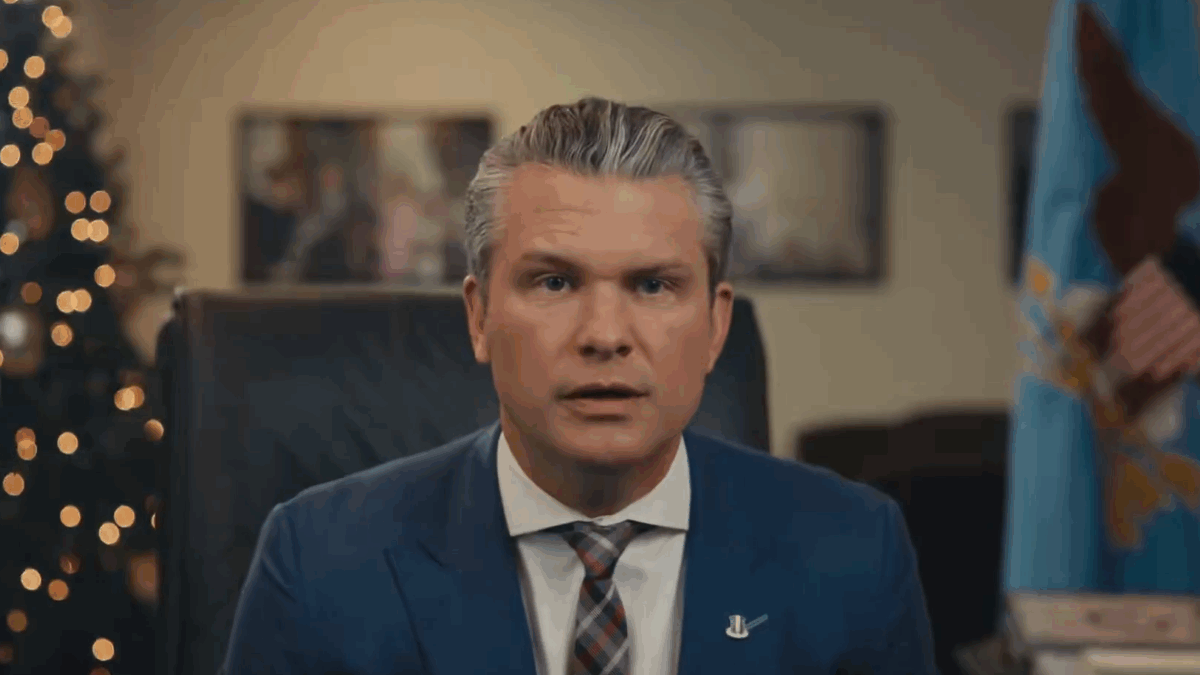Parents rallied outside of Luther Jackson Middle School in Fairfax, Va., on Thursday in opposition to a proposed policy change that would increase penalties on fourth- through sixth-graders for “misgendering” or “deadnaming” people — for example, addressing a boy as “he” even though he calls himself a female, or calling “transgender or gender-expansive” people by a name other than their chosen name.
The Fairfax County School Board was initially scheduled to consider this change to the Student Rights and Responsibilities guide at their meeting that evening, but they rescheduled discussion of the topic to June 16.
“It could be that some people are waiting for the stillness and quiet of a summer evening when we’re all not paying attention,” said Stephanie Lundquist-Arora, a mother who spoke at the event. “But I’m here to say, our enthusiasm for the First Amendment will not wane; we will not stop paying attention, even in the summer months.”
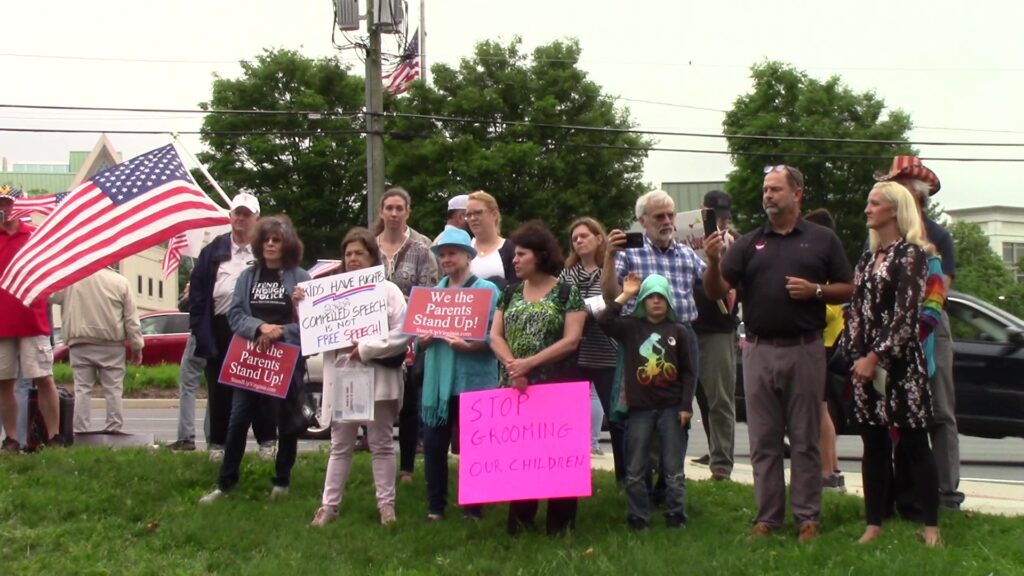
In addition to this policy change, rally-goers expressed concern about declining education quality and racist and sexualized materials in schools. Asra Nomani, who is a senior contributor at The Federalist and whose son graduated from the school system, showed a group of parents a stack of books she said were in schools around the country.
In a children’s book called “Not My Idea: A Book About Whiteness,” Nomani showed the other parents a line that read, “Innocence is overrated.” Nomani also held up a book for teenagers called “Let’s Talk About It: The Teen’s Guide to Sex, Relationships, and Being a Human.” The book had cartoon illustrations of people who were naked and engaged in sexual acts. Nomani showed the parents where the book encouraged teens to post pornography of themselves online.
Nomani said when government goes unsupervised, sexualized education “becomes state-sanctioned criminality,” and the state of Virginia does in fact allow public schools to engage in activity that is unlawful for almost every other entity. Publicly funded schools are included in a short list of entities not forbidden by state code to purchase, exhibit, distribute, and loan obscene books and printed materials. This means public schools in Virginia are allowed to distribute sexualized books to children even if the books have no “literary, artistic, political or scientific value.”
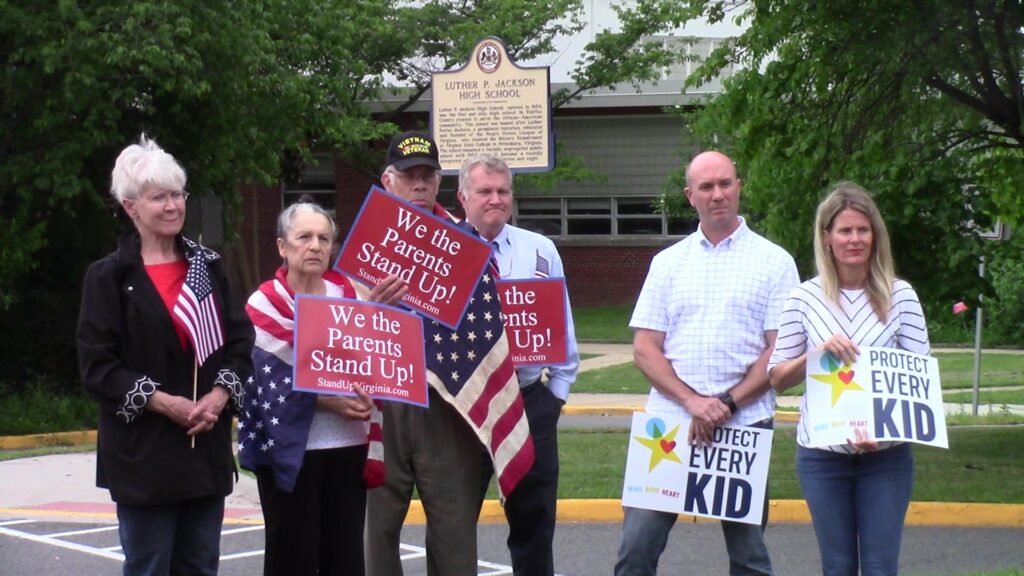
Alice Guo, a mother at the rally, said the sexualized books in schools confuse children, who hear conflicting messages from their parents and teachers and don’t know whom to trust.
“I see a lot of confusion in kids, a lot of depression in teens,” Guo said, “because how can they be happy? If you base all your actions, decisions on your emotions, you’re a depressed human being, because you don’t know what you’re going to feel tomorrow. But if you base your actions based on your character, based on your values, you don’t sway easily, even when the wind is strong. So most kids are kind of disoriented. They don’t know who they are.”
